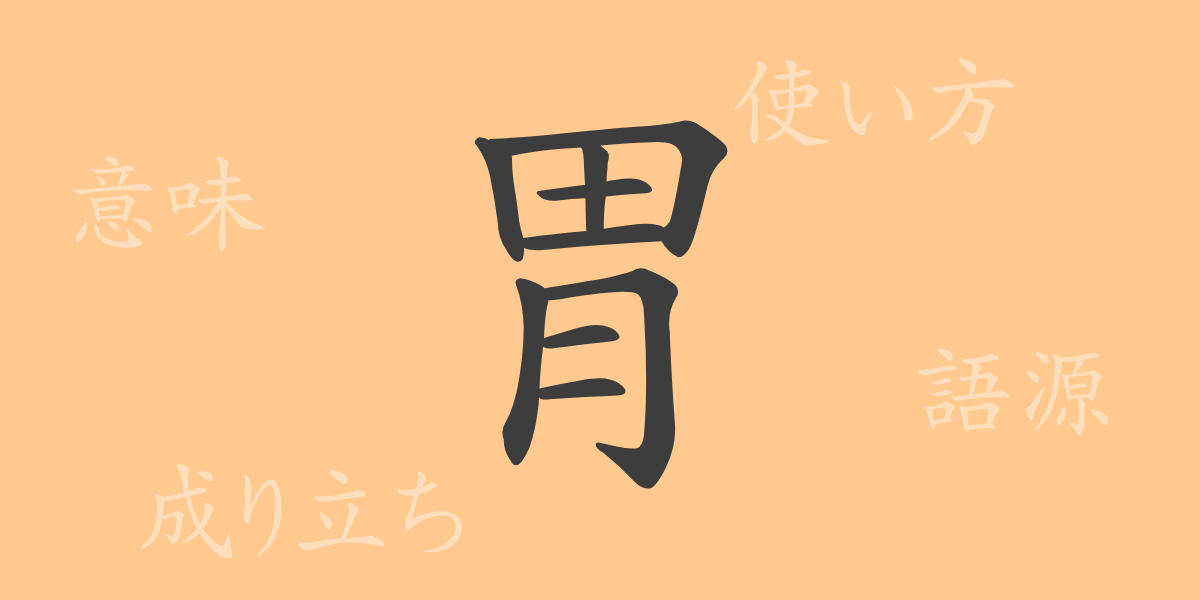“
The beauty of the Japanese language is also reflected in its kanji. Each character, laden with meaning and history, reveals the depth of Japanese culture. This article shines a spotlight on the kanji ‘胃’ (I), closely linked to our daily lives, delving into its origins, contemporary usage, and even the phrases and proverbs utilizing it. While ‘胃’ represents a vital organ governing health, we’ll also explore the allure of the kanji itself.
Origins of 胃 (I)
The kanji ‘胃’ originated from ancient Chinese pictographs, initially depicting a stomach. Originally, it portrayed the organ that temporarily stores food, symbolizing the stomach’s function. Over time, its form evolved into the more abstract shape seen today, yet its fundamental meaning as a part of the digestive system remains unchanged, denoting the ‘stomach’.
Meaning and Usage of 胃
The kanji ‘胃’ refers to the stomach in humans and animals. It is widely used not only in medical contexts but also in everyday language. For example, phrases like ‘胃が痛い’ (stomach ache), ‘胃薬’ (stomach medicine), and ‘胃カメラ’ (endoscopy) are common. Additionally, ‘胃’ appears in metaphorical expressions, such as ‘胃にもたれる’ (heavy on the stomach), which can refer to both indigestible food and psychological stress.
Readings, Stroke Count, and Radical of 胃
Let’s examine the readings, structure, and components of the kanji ‘胃’.
- Readings: On’yomi (Sino-Japanese reading) is ‘I’; there are no Kun’yomi (native Japanese readings).
- Stroke Count: 9 strokes.
- Radical: 肉 (Nikuzuki), which pertains to flesh or meat.
Phrases, Idioms, and Proverbs Involving 胃
Phrases and idioms containing ‘胃’ often relate to health and food. Examples include ‘胃腸’ (stomach and intestines), ‘胃痛’ (stomach pain), and ‘胃弱’ (weak stomach), directly describing the condition or function of the stomach. The idiom ‘胃袋を掴む’ (to capture one’s stomach) metaphorically means to win someone over through satisfying food. A proverb like ‘胃に入れば心もわすれる’ (Once in the stomach, the heart forgets) suggests that a satisfying meal can make one forget other worries.
Summary of 胃
The kanji ‘胃’ not only represents a crucial organ directly linked to our health but also deeply intertwines with Japanese food culture and values. From its origins to modern usage and the phrases it features in, this single character holds significant weight. By appreciating the health of our ‘胃’ and understanding the rich cultural backdrop of this kanji, we can savor the language more profoundly.
“

























